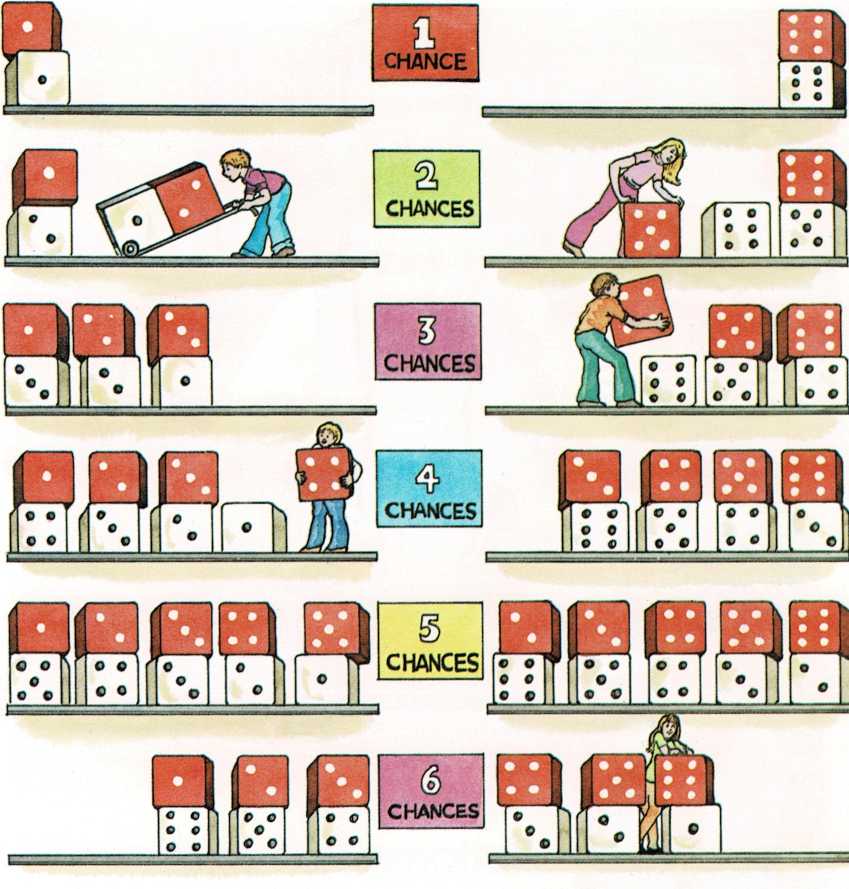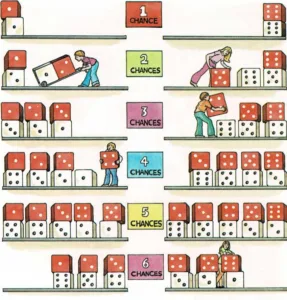Game chances
You’re playing a game of Monopoly with a friend. You’re coming to some
of his property that has hotels on it. And he’s nearing some of your
property that also has hotels. If you roll either a 4 or 5 with the
dice, you’ll land on his property. If he rolls a 6 or a 7, he’ll land on
your property.
Which of you is most likely to land on the other’s property? Or are both
your chances just about the same? There’s a way to tell!
When you roll two dice, you can get any one of eleven different
numbers—from 2 to 12. You just add the number of dots on the top of
each die. And you can get most of the numbers in two, three, or more
ways.
Do you think that any number or numbers will come up more often than
others when you throw two dice? Absolutely I There are exactly
thirty-six possible combinations. But some numbers have a much better
chance of coming up than others.
For example, there is only one way to get a 12—with a 6 and a 6. So
you have only one chance out of thirty-six [(\^l)]{.smallcaps} to roll a
12. But there are six ways to get a 7, so you have six chances out of
thirty-six (/~K~) to roll a seven.
Try rolling a pair of dice fifty times. Keep track of the numbers that
come up. You’ll find that 6, 7, and 8 will probably come up most often;
4, 5, 9, and 10 next most often, and 2, 3, 11, and 12 least often.
So your friend has a slightly better chance of throwing either a 6 or a
7 and landing on your property than you do of throwing a 4 or a 5 and
landing on his.


